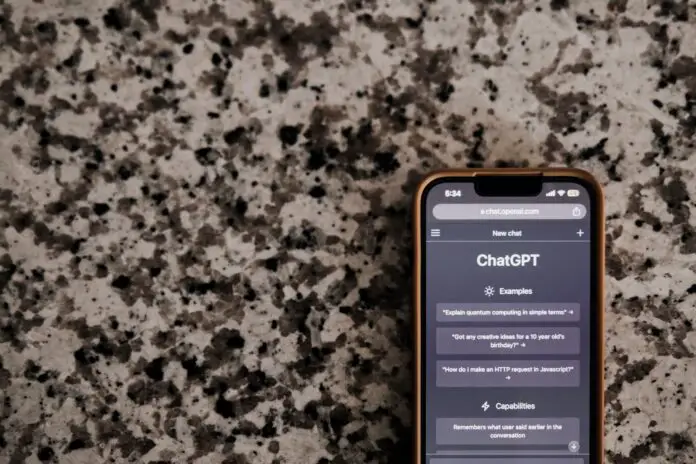The rise of AI in content creation has revolutionized the way we generate written material. However, with this technological advancement comes the pressing need to address the issue of plagiarism. In a world where AI-powered models like ChatGPT assist in producing content, maintaining originality has become paramount. This article explores the challenges of plagiarism in AI-generated content and delves into the measures we can take to prevent it, all while leveraging the capabilities of ChatGPT.
Understanding ChatGPT
Before we delve into the issue of plagiarism, it’s crucial to grasp the essence of ChatGPT. Developed by OpenAI, ChatGPT is an advanced language model that can generate coherent and contextually relevant text.
It has been widely adopted as a tool for content creation, providing valuable assistance to writers, marketers, and professionals in various industries. However, the very nature of its capabilities raises concerns regarding the potential for plagiarism.
Discover how to preserve originality in AI-generated content and prevent plagiarism with ChatGPT. Explore the challenges of AI-driven plagiarism, safeguards to implement, and the benefits of creating unique content. Learn how to leverage ChatGPT while maintaining a distinctive voice and promoting ethical AI usage. Explore the future of plagiarism prevention and embark on a journey towards a plagiarism-free content landscape.
Maintaining Originality in AI-Generated Content: A Guide to Preventing Plagiarism with ChatGPT
1. The Challenges of Plagiarism in AI
Plagiarism, defined as the act of using someone else’s work without proper attribution, takes on new dimensions in the realm of AI.
With ChatGPT, there is a risk that the generated content may resemble existing sources too closely, leading to unintentional plagiarism.
Additionally, some individuals may exploit AI models to produce plagiarized content intentionally, further exacerbating the issue. As AI becomes more prevalent, it is essential to address the ethical implications of AI-generated plagiarism.
2. Safeguarding Against Plagiarism with ChatGPT
To mitigate the risks of plagiarism associated with AI, it is crucial to implement safeguards when utilizing ChatGPT. First and foremost, training AI models with an emphasis on originality is essential. By exposing ChatGPT to a diverse range of sources and encouraging creativity during the training process, we can enhance its ability to produce unique content.
Furthermore, employing robust algorithms for plagiarism detection can help identify instances of potential plagiarism, allowing for appropriate corrective action.
Additionally, human oversight and editing play a pivotal role in ensuring that AI-generated content meets the standards of originality.
3. Promoting Ethical AI Usage
Responsible use of AI tools in content creation is paramount to combating plagiarism effectively. Educating users about the consequences of plagiarism and the importance of originality is crucial.
By raising awareness and emphasizing the ethical implications of AI-generated plagiarism, content creators can make informed decisions while leveraging AI tools.
Moreover, encouraging transparency and disclosure regarding the use of AI in content creation can build trust with readers and foster a culture of originality.
4. The Benefits of Original Content
Creating original content brings numerous advantages for both content creators and their audiences. By producing unique material, authors establish themselves as credible and knowledgeable sources in their respective fields.
Originality also plays a pivotal role in attracting and retaining readership, as consumers increasingly seek fresh and engaging content.
Furthermore, organizations and individuals can enhance their reputation by consistently delivering unique perspectives and insights to their audience.
5. Leveraging ChatGPT for Unique Content Creation
Despite the concerns surrounding plagiarism, ChatGPT can be a powerful tool for fostering creativity and inspiration. By exploring ChatGPT’s vast capabilities, content creators can generate novel ideas and overcome writer’s block.
Moreover, utilizing ChatGPT as a collaborative tool allows for fruitful interactions between human authors and AI models, resulting in unique content that combines the best of both worlds.
By incorporating personal insights and perspectives into AI-generated content, writers can maintain authorship and ensure the distinctiveness of their work.
6. Maintaining a Distinctive Voice with ChatGPT
One common fear associated with AI-generated content is the potential loss of authorship and creativity. However, by striking a balance between AI assistance and personal writing style, content creators can infuse their work with a unique voice.
ChatGPT can act as a helpful tool, providing suggestions and structure while allowing authors to express their thoughts and emotions authentically.
This human touch in AI-generated content helps establish a stronger connection with the audience and fosters genuine engagement.
7. The Future of Plagiarism Prevention in AI
Looking ahead, the future of plagiarism prevention in AI holds promise. Advancements in AI-driven plagiarism detection tools are on the horizon, providing more robust and accurate methods for identifying instances of plagiarism.
Collaboration between AI developers and content creators will be instrumental in refining these tools and ensuring their effectiveness.
Moreover, building a culture of originality within the AI community through conferences, workshops, and open discussions will contribute to the collective efforts in eliminating plagiarism.
Conclusion
As AI continues to revolutionize content creation, the issue of plagiarism becomes increasingly important to address. ChatGPT, with its capabilities, offers immense potential for assisting content creators. However, it is crucial to ensure that originality remains at the forefront.
By implementing measures such as training AI models for originality, employing plagiarism detection algorithms, and emphasizing human oversight, we can mitigate the risks of plagiarism in AI-generated content. By embracing responsible AI usage and nurturing a culture of originality, we can create a future where plagiarism is effectively combated, while still leveraging the power of ChatGPT to produce unique and compelling content.


